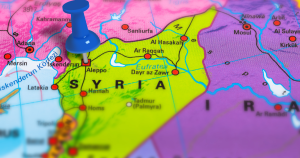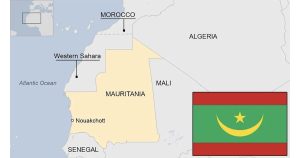Rome, Brussels, 17 July 2021
As the world continues to grapple with the realities of the global pandemic, including the inequities exposed between different parts of the world, ongoing human rights violations and impunity for past crimes remind us that the fight for international justice must nonetheless continue to be a high priority.
A facet of international justice that has been gaining momentum over the past year is environmental justice. No Peace Without Justice (NPWJ) highlights the need for accountability and redress for crimes like illegal mining, logging and illicit trade, which significantly affect diverse communities across the globe, including those comprised by indigenous peoples, and bring destruction to ecosystems vital to these communities, such as those highlighted through our campaign “Amazonia Beyond the Crisis”. Another main area of commitment for NPWJ is targeting the ongoing impunity for crimes and violations related to the environment as a significant obstacle to counteracting environmental and human devastation. It is of paramount importance to strengthen the fight for environmental accountability and ensure we all may enjoy a clean and healthy environment and strong ecosystems for years to come.
Though constant, unwavering efforts must be put forward to bring awareness to the need for environmental justice, some recent events have shown promising development for the recognition of environmental crimes, like the proposed legal definition of ecocide. Addressing environmental justice may include holding corporations, governments and others perpetrating environmental disaster responsible, and increasing awareness of their deliberately harmful activities and practices among their communities and on the world stage. NPWJ welcomes the efforts done in this regard, and looks forward to further contributing to a legal definition of ecocide within International (Criminal) Law, including discussions that could lead to the future jurisdiction of the ICC over this crime, or other fora for accountability. The recent guilty verdict in the case of Berta Cáceres, an indigenous environmentalist murdered back in 2016 for opposing construction of a dam in Honduras, reminds us although it may take time, the fight for justice for our environment and those who defend it should not be given up.
This year has seen several changes for the ICC, particularly with the election of a new Prosecutor, Mr Karim Khan, who took office in June 2021. NPWJ takes this opportunity to pay tribute to the outgoing Prosecutor, Ms Fatou Bensouda, who despite the pandemic, was able to leave important legacies in the final months of her tenure, including the adoption of a Policy on Situation Completion, as well as a Policy on Cultural Heritage. Overall, Ms Bensouda left a stronger Office of the Prosecutor than the one she inherited, that has a renewed focus on improved procedures and policies, including in particular in respect of children and sexual and gender-based violence. NPWJ also takes this opportunity to express its commitment to working with the new Prosecutor, and looks forward to the ongoing cooperation with civil society that has been a hallmark of the work of the OTP and that we believe has strengthened both their work and ours.
The new Prosecutor, alongside new leadership of the Court and its Assembly of States Parties, faces both challenges and opportunities for reform of systems that may once have been thought to be effective, but no longer seem fit for purpose. The Independent Expert Review (IER) of the International Criminal Court (ICC), begun in 2019, has highlighted a number of areas where the ICC can and must do better to ensure it can fulfil its mandate of delivering justice and redress for victims of war crimes, crimes against humanity and genocide. NPWJ welcomes the release of the IER Report and the action taken by States Parties to work together with the Court and civil society to prioritise the IER recommendations and chart the way towards their implementation. We stand ready to continue working with the Review Mechanism and civil society colleagues to support implementation of those recommendations in a way that can ensure the maximum positive impact for victims and communities affected by crimes within the ICC’s jurisdiction.
One main area of great concern that needs urgent attention in the coming year is the question of the Court’s budget and operational resources. For too long, the Court and its States Parties have been locked in an increasingly destructive dance in which States Parties restrict the Court’s budget due to non-performance, and the Court justifies non-performance by reason of a lack of resources. The resource issue is playing out in an even more stark way at the Special Tribunal for Lebanon, where the tribunal has announced it will have to close its doors because States no longer seem willing to fund it, and the Judges have requested guidance from the UN Security Council as to what to do with its ongoing case in the event no funding is found. While there are valid criticisms to make of the STL, as there are of the ICC, international justice should not be held hostage to shifting political priorities that are played out through loosening or tightening of purse-strings. States simply must do better and remove the “resource excuse” from the repertoire of international justice institutions.
Finally, this International Justice Day heralds a new dawn for civil society, with the revitalization of the Coalition for the International Criminal Court (CICC). The CICC, of which NPWJ is a founding and Steering Committee member, has been undergoing some self-reflection, and is emerging as a stronger force for international justice and for the victims and communities at the core of its work. Civil society continues to be a critical partner for international justice institutions and for States Parties, alongside the human rights defenders who daily risk their lives in pursuit of the fight against impunity. NPWJ calls on States and the international community to support civil society and the human rights defenders who are the lifeblood of international justice, and to ensure their ongoing cooperation and collaboration as we all work together towards a stronger system of international justice that is fit for purpose for the years and decades ahead.
For further information, please contact Alison Smith, Director of International Justice, on asmith@npwj.org or Nicola Giovannini, Press & Public Affairs Coordinator on ngiovannini@npwj.org.




